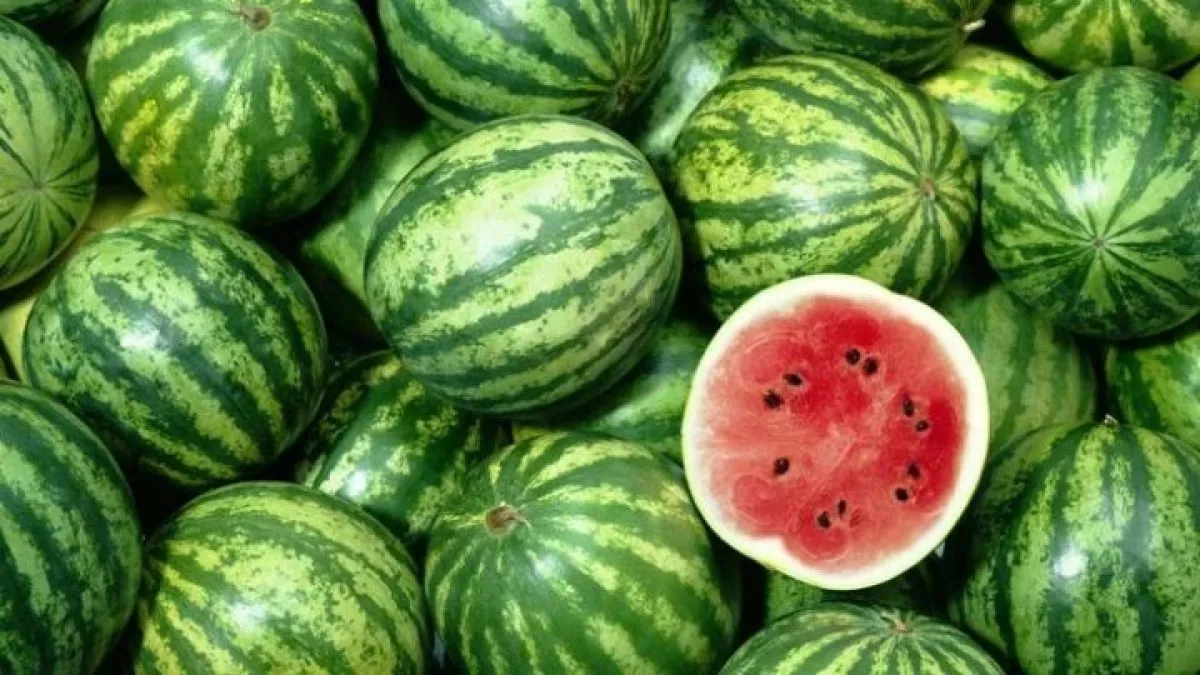Please buy watermelon and melon only from the official market

With the appearance of the first watermelons and melons in the markets and supermarkets of Uzbekistan, specialists in the field of gastroenterology are advising the population to exercise caution. This was reported by Upl.uz.
Traditionally, the mass ripening of watermelons and melons in the republic occurs in the second half of July and in August. However, despite the high desire to use the early harvest that appears in the sales stalls in May and June, this situation can pose health risks.
Gastroenterologist Kamola Akramova emphasizes that if local fruits appear much earlier than the established deadlines in natural conditions, this situation requires vigilance. According to her, the phenological cycles of watermelons and melons in Uzbekistan's climatic conditions are well studied.
In regions such as Khorezm and the Fergana Valley, the mass ripening of fruits in open fields starts later. Therefore, products sold in spring and early summer are usually imported or grown using intensive agricultural technologies.
Akramova also noted that imported fruits from countries that produce crops throughout the year are often sold through large retail chains, and such organizations undergo documentation and laboratory control that certifies product safety. However, the greatest concern is focused on products that are artificially ripened in local fields.
As an agricultural specialist, Akramova stated that farmers often excessively use nitrogen fertilizers such as nitrates to obtain fruits before the natural harvest season. These substances accelerate plant growth, but their excessive amounts in fruits can be harmful to health.
Nitrates can accumulate in fruits and lead to food poisoning when consumed. Symptoms include headaches, nausea, diarrhea, and in severe cases, poisoning that requires medical intervention.
Nitrates convert to nitrites in the body, disrupting hemoglobin function in the blood and negatively affecting the cardiovascular system and liver function. Additionally, continuous consumption of nitrates increases the risk of nitrosamines formation, which can lead to the development of cancer diseases.
The conditions for storing and selling fruits are also important. Illegal trade cases are frequently encountered during control measures conducted by law enforcement agencies and sanitary-epidemiological service employees.
One of the additional risk factors is the exposure of watermelons and melons lying on the ground in the sun at street trading points near highways. In such conditions, fruits absorb heavy metals from vehicle exhaust, and violations of sanitary regulations lead to the proliferation of microbes.
Regional authorities are taking measures to prevent such illegal trade, but completely eliminating it is currently impossible. Experts advise consumers to wait for the start of the mass harvest season for watermelons and melons and to purchase products only from official farmers' markets or supermarkets, as well as to demand documents that certify product safety.
The homeland of watermelon is the Kalahari Desert in South Africa. Wild ancestors of watermelon can still be found there.
Although these wild fruits have a bitter taste, they are an important source of water for local tribes

